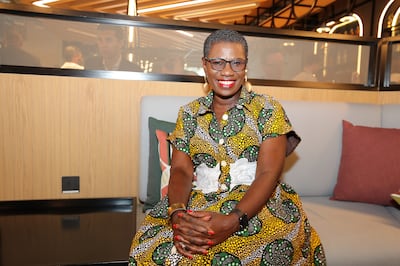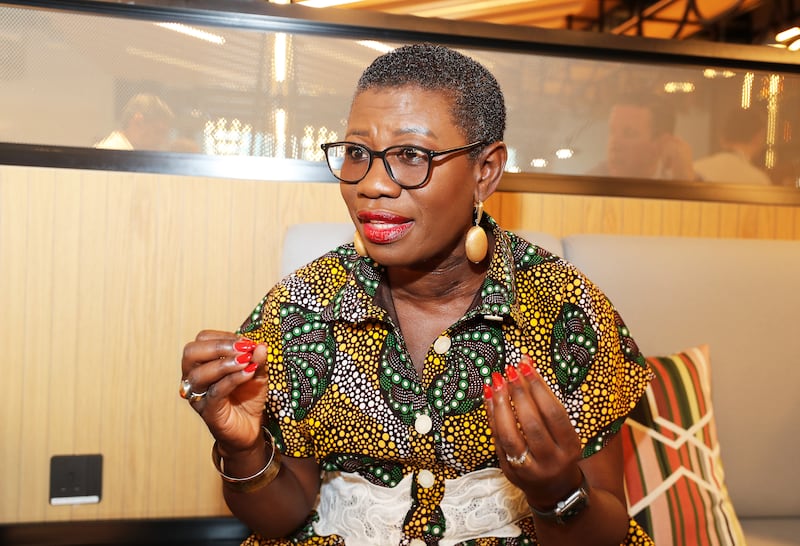Live updates: Follow the latest news on Cop28
The mayor of a major African city fears it will become the first in the world to run out of water entirely.
Yvonne Aki-Sawyerr, Freetown's most senior politician, said the city's growing population could end up worse off if climate financing funds were used for other projects.
A loss and damage fund to help the world’s poorest and most vulnerable nations affected by climate change was announced on the opening day of Cop28 in Dubai.
As the world’s 12th-poorest nation, with about 57 per cent of the population in poverty, Sierra Leone is one of the countries expecting a windfall.
Flanked by mountains and with an Atlantic coast, Freetown has little space for agriculture, leading to deforestation and a land grab in surrounding areas.
As the West African nation prepares for a dry season that could have devastating consequences for its 1.3 million people, the government is working on a feasibility study to build a $1.5 billion bridge connecting Freetown with nearby Lungi, currently only accessible by ferry across Tagrin Bay.
But Ms Aki-Sawyerr, who is not a member of the central government that won re-election in June, said the Chinese-backed project should not be a priority when many could struggle to find fresh water in the months ahead.
“Potentially, it [the loss and damage fund] is really good news from the perspective that Freetown is one of the most vulnerable cities to climate change,” Ms Aki-Sawyerr told The National on the sidelines of Cop28.
“That definitely means we would expect to be part of that distribution.
“The loss and damage fund is up to about $400 million but there are easily two billion people severely impacted by climate change today.
“That’s less than 50 cents per person, so many questions haven't been answered.
“Running out of water is a real threat. I have real concerns [about the Freetown-Lungi bridge].
“I don't see an economic case when we've got major connection issues and health issues.
“Solving our energy problem first would be catalytic in terms of development, growth and education.”

Reservoirs drying up
Freetown's water comes from underground reservoirs, the largest of which is Guma. With a capacity of almost 20 million cubic metres, it is encircled by the Guma Dam that was constructed in the 1960s, 15km south of Freetown. Much of the associated facilities have not been modernised since.
Freetown began to expand rapidly during the civil war that decimated Sierra Leone in the late 1990s and early 2000s, claiming more than 50,000 lives and displacing half a million people.
Population growth has since accelerated at an astonishing rate, about 3 per cent a year, from 578,000 in 1993 to 1.3 million today.
Since Ms Aki-Sawyerr took office in 2018, she has attempted to bring 70 per cent more taxpayers into the system by using satellite imagery to identify new homes in Freetown and develop a property database.
The first woman to hold the post in Freetown for almost 40 years, she has also worked in the poorest areas of the capital to improve sanitation and protect market vendors with shades from the scorching sun.
A waste-recycling plant has also helped improve the lives of local communities.
“We're now seeing another influx of people coming from rural areas linked to climate change, because crops are failing,” said Ms Aki-Sawyerr.
“More than 60 per cent of our national population are subsistence farmers, so when you farm and lose your crops, you have nothing to fall back on.
“I know many women who have left their homes in the rural areas, left their empty villages and come to Freetown looking for a better life. It is putting immense pressure on the city.”







